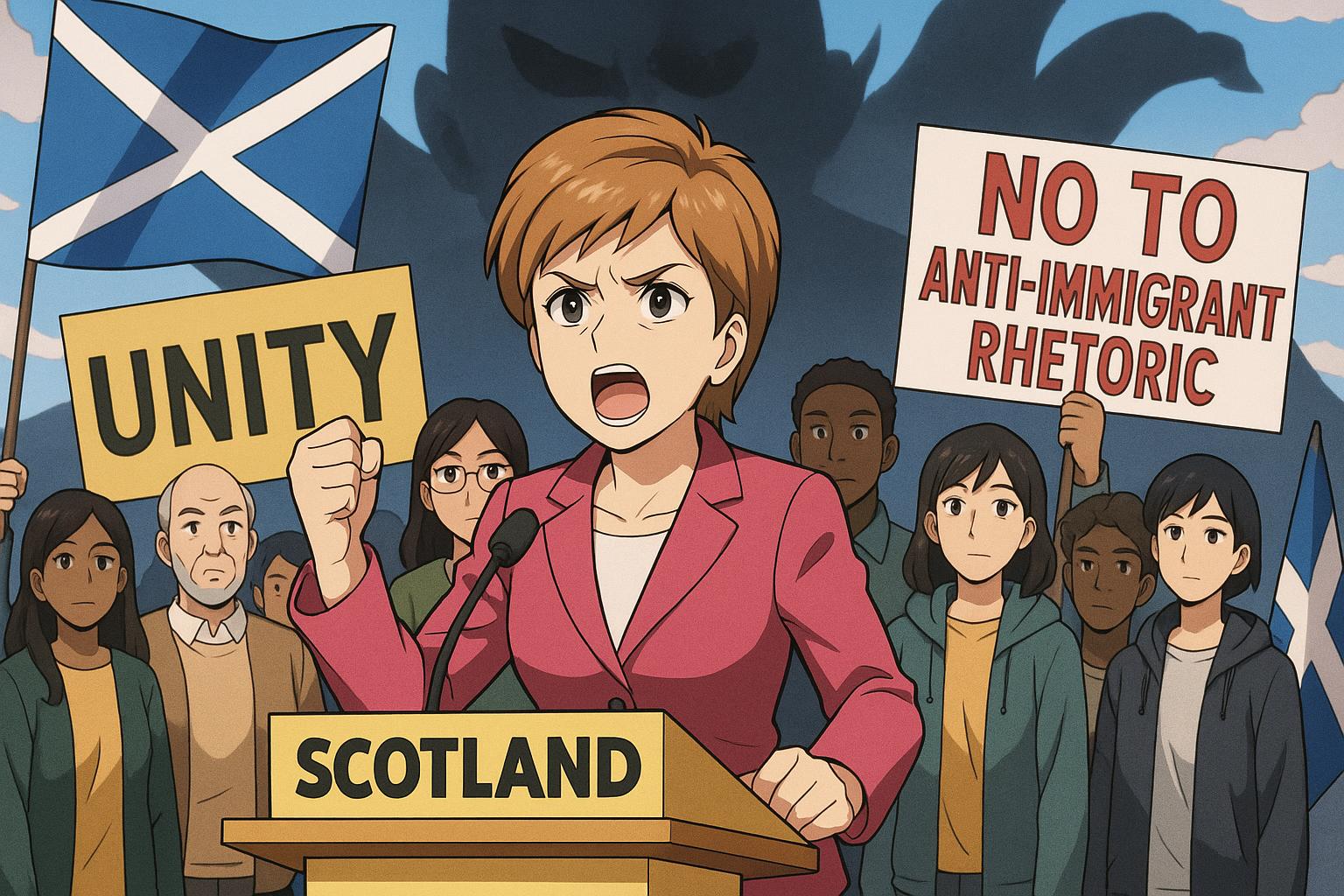Former Scottish First Minister Nicola Sturgeon has unleashed a scathing attack on Prime Minister Keir Starmer, condemning his recent immigration speech as "the dumbest of dumb politics." This criticism follows Starmer's alarming assertion that without stringent immigration controls, the UK may become an "island of strangers." Such inflammatory rhetoric echoes Enoch Powell’s notorious "rivers of blood" speech, stirring up intense debate about the implications of these divisive views.
During a campaign stop in Blantyre for the upcoming by-election in Hamilton, Larkhall and Stonehouse, Sturgeon accused Starmer of employing a "very deliberate dog whistle" to stoke anti-immigrant sentiments. Contrasting his comments, she highlighted the value of diversity in Scotland, declaring it one of the nation’s greatest strengths. Progressive politicians must vigorously combat the insidious rise of anti-immigrant narratives, represented in part by Starmer's increasingly hardline stance.
Sturgeon pointedly remarked on the implications of Starmer's rhetoric, stating, "Either he was aware of the consequences, in which case it's disgraceful, or he wasn't aware, in which case: why is he in a leadership position at all?" Her observations raise alarm bells within the Labour Party about the compatibility of Starmer’s approach with the party’s values, potentially alienating long-time supporters. Polling data suggests his comments have failed to enhance his support, underscoring a strategic contradiction in his approach.
Moreover, Sturgeon argued that by legitimising stances akin to those historically pushed by figures on the far right, Starmer risks empowering right-wing parties while harming Labour's traditional base. This rhetoric, echoing calls made by less reputable figures, could have harmful repercussions for Scotland’s economy and public services. Sturgeon categorically termed this moment as "one of the most disreputable" in Labour’s history, urging for a decisive stand against the corrosive politics surrounding immigration.
Critics like Scottish Labour deputy leader Jackie Baillie have responded by accusing Sturgeon of lacking political introspection in light of her own leadership’s failures, including rising homelessness and NHS challenges. These remarks highlight a broader internal conflict within Labour, contrasting Sturgeon’s past leadership with Starmer’s new direction.
Starmer's immigration policies represent a stark departure from the previous government’s more compassionate approach. His administration now prioritises drastically reducing immigration levels, with proposals that include tightening English proficiency requirements and extending the timeline for acquiring settled status. This shift has drawn fire not only from within Labour but also from opposition parties like the Greens, who have condemned his polarising language. They argue that a more empathetic approach is essential, one that addresses the root causes of migration rather than merely seeking to curtail numbers.
As Starmer's administration strives to recalibrate Labour’s immigration stance, the challenge looms large: how to foster a dialogue that respects immigrant communities while addressing the genuine anxieties of those feeling left behind. As the political landscape continues to shift, the ramifications of these contentious immigration debates will reverberate throughout the UK, highlighting an urgent need for thoughtful, inclusive policy-making.
Source: Noah Wire Services
